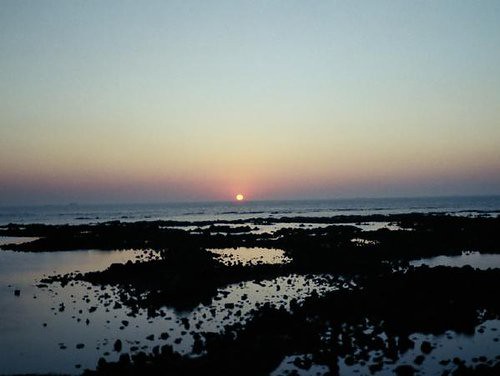Nirmal Verma and his river
This post, in some sense is a continuation of an earlier post, though it is self-contained and can be read individually.
Nirmal Verma (@LOC, @Wikipedia) is not an unknown figure in Hindi literature. In July this year, I came to know that Hindi books of NCERT have changed and are available with new names (Samvaad, Vaasanti) as opposed to Parag, Swati in my time. I went to a near by book shop and picked them. One of the first few Chapters I came across in one of these books was titled "Mere liye Bhartiya hone ka arth" - The meaning of being an Indian to me. Such a poetic, yet very accurate and rational essay I had never read before, and the author was Nirmal Verma.
In the beginning of this essay he recalls one of his childhood memories. Once he was travelling with his mother by a train, a river-bridge came and his mother asked him to throw some coins in the river and fold his hand (a typical Indian way to pay respect to elderly ones). The author did it. He was told by the mother that he should love and respect all rivers as much as her, The own mother!
Indians are told in their childhood to call a river, a cow, the land (Bharatmata), or a goddess (maan Saraswati) etc., a Mother. And when a mother tells her child to do so, it requires a feeling of great sacrifice from mother's side. Logically speaking, a mother has exclusive right on her child and she should be unhappy if her child starts calling something (that too non-living) as mother! But life does not always go logically and this "illogical" feeling of Indian mothers is what makes them unique.
Coming back to the essay - The essay ends with the following beautiful lines:
Nirmal Verma (@LOC, @Wikipedia) is not an unknown figure in Hindi literature. In July this year, I came to know that Hindi books of NCERT have changed and are available with new names (Samvaad, Vaasanti) as opposed to Parag, Swati in my time. I went to a near by book shop and picked them. One of the first few Chapters I came across in one of these books was titled "Mere liye Bhartiya hone ka arth" - The meaning of being an Indian to me. Such a poetic, yet very accurate and rational essay I had never read before, and the author was Nirmal Verma.
In the beginning of this essay he recalls one of his childhood memories. Once he was travelling with his mother by a train, a river-bridge came and his mother asked him to throw some coins in the river and fold his hand (a typical Indian way to pay respect to elderly ones). The author did it. He was told by the mother that he should love and respect all rivers as much as her, The own mother!
Indians are told in their childhood to call a river, a cow, the land (Bharatmata), or a goddess (maan Saraswati) etc., a Mother. And when a mother tells her child to do so, it requires a feeling of great sacrifice from mother's side. Logically speaking, a mother has exclusive right on her child and she should be unhappy if her child starts calling something (that too non-living) as mother! But life does not always go logically and this "illogical" feeling of Indian mothers is what makes them unique.
Coming back to the essay - The essay ends with the following beautiful lines:
"... lekin us shaam maine uski ek jhalak dekhi thi jab maine apni maan ke kehne par pul ke neeche bahti nadi mein paise fenke the. Meri maan ab nahi hain, lekin sochta hoon wah nadi ab bhi hai. Prarthana karta hoon ki bilkul sookh nahi gayi hai."
The little kid grows up and tries to locate his mother in the river. So after reading this essay how can I resist if someone tells me that a river is non-living!
The little kid grows up and tries to locate his mother in the river. So after reading this essay how can I resist if someone tells me that a river is non-living!
- PS: A friend helped me recalling the excerpts from the essay. Thanks to her.



2 Comments:
Hi Amit -- Good to see your blog. How's life over there?
Achha laga...
Post a Comment
<< Home